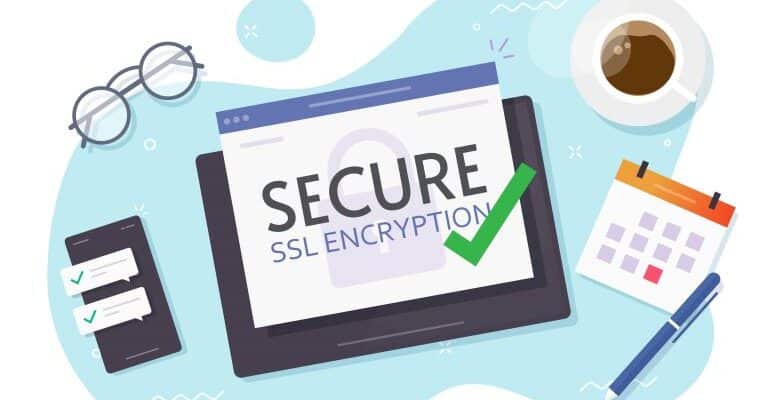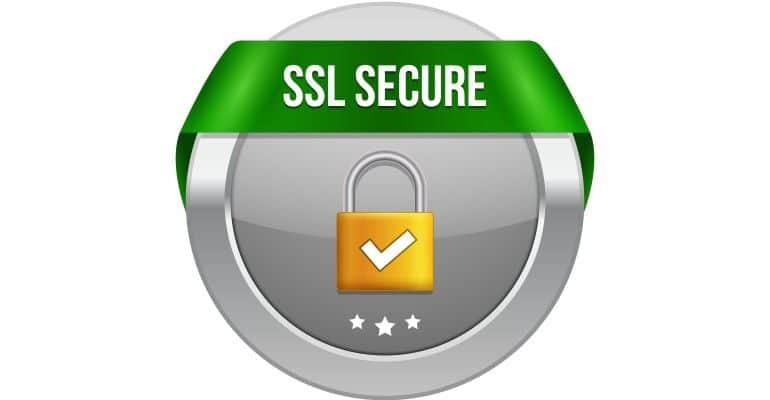If you encounter the exchange of confidential information in your business or your business is closely related to the implementation of online transactions, it is quite certain that you need an SSL Certificate as a tool that provides a higher level of security and protection. There are many positives to having an SSL Certificate, and that is what we will talk about today.
What is an SSL Certificate?

SSL is an acronym for Secure Sockets Layer – a standard global security technology that enables encrypted communication between web browsers and web servers. Millions of online businesses and individual users use it to reduce the risk of data theft or illegal processing of sensitive information. This includes credit card numbers, usernames, and passwords as well as emails from hackers and other groups.
Moreover, an SSL Certificate allows private communication between only two selected parties. To ensure this secure client-server connection, it is necessary to install an SSL certificate on your moving company website.
Thus installed SSL Certificate:
- Confirms the identity of the website (which guarantees visitors that they are not on a fake site), and
- Encrypts data transferred between the user and the verified location
Are all SSL Certificates the same?
No, they are not. Certificates differ in the level of security as well as in the conditions under which they are issued. As a matter of fact, you can find certificates that cost several thousand dollars a year, as well as free certificates, such as Comodo SSL.
SSL Certificates differ depending on who issues them, the number of secured domains, and the type of validation.
Domain
When it comes to the number of domains that can be covered by one SSL Certificate, SSL Certificates can be divided into the following groups:
- Single SSL – used to protect a single domain or subdomain.
- WildCard SSL – used to protect one domain and an unlimited number of its subdomains.
- Multi Domain – used to protect multiple different domains on a single account.
Validation
Validation is one of the most important features of an SSL Certificate. And, according to the level of validation, we can divide SSL Certificates into:
- Domain validation (DV)
- What is it? This type of certificate is one of the basic and accessible certificates, covers one domain or subdomain, and provides basic encryption.
- Issuing time? It is possible to issue a certificate within 10 minutes.
- Organization validation
- What is it? This type of certificate requires certification from the organization behind the domain (name and address).
- Issuing time? Two to three business days.
- EV SSL Certificate (Extended Validation)
- What is it? This type of certificate provides the highest level of security due to the conduct of a thorough inspection before issuance. In addition to entity authentication and domain ownership, the legal, physical, and operational existence of the entity is verified.
- Issuing time? This type of certificate is issued after checks that can take several days to several weeks.
Who needs an SSL Certificate?
An SSL Certificate is required for any individual user or organization that uses its website to request, obtain, process, store, or display confidential or sensitive information.
Some examples of this information are:
- Login data and passwords
- Financial information (credit card numbers, bank accounts)
- Personal data (names, addresses, dates of birth)
- Ownership information
- Legal contracts and documentation
- Client lists
- Medical documentation
In addition, having an SSL Certificate gives visitors on the site additional confidence that the website they are on is authentic and verified. So, if you are thinking about how to improve website security, this is definitely a step you should not disregard.
How will visitors know that the site has an SSL Certificate?

There are visual indicators that indicate whether a site has an SSL Certificate installed:
- Padlock on the left side of the URL, as well as HTTPS instead of the HTTP prefix in the address name
- Seal of Trust (Site Seal)
- Green bar next to the address (when EV SSL is issued)
The influence on positioning (SEO)
In addition to its primary function, which is data protection, having an SSL Certificate on the site has a positive effect on positioning in search results.
In 2014, Google announced that HTTPS was becoming a ranking signal. What did that mean in practice? Google wanted to encourage more sites to adopt the SSL protocol, of course, with the aim of raising the level of security of Internet users and set out to favor and better position those sites that have SSL Certification.
Also, as of October 2017, Google Chrome has started showing a warning (Not secure) for all those sites that do not have an SSL Certificate.
How to get one?

Probably the most important part of the SSL Certification process is where it comes from. SSL certificates are issued by Certificate Authorities (CAs), certification bodies that verify the identity and legitimacy of each entity requesting a certificate.
SSL Certificates also instill trust because each contains credentials. When you submit a request for an SSL Certificate, a third party verifies the information about your organization and issues you a unique certificate that contains that information. This process is called authentication.
The role of the CA is to accept the request for the issuance of a certificate, perform authentication, issue a certificate and maintain the status of information about it.
Why is having an SSL Certificate important?
Having an SSL Certificate protects the privacy of online interactions even when traveling over the public Internet. It also instills confidence in customers that your site is secure for transactions. If you ask users of your website or your moving industry software to log in, they may enter personal information. You must protect the privacy of that information. You also need to reassure them that your site is authentic. We use SSL for email servers, web applications, server-to-server communication, and more.






